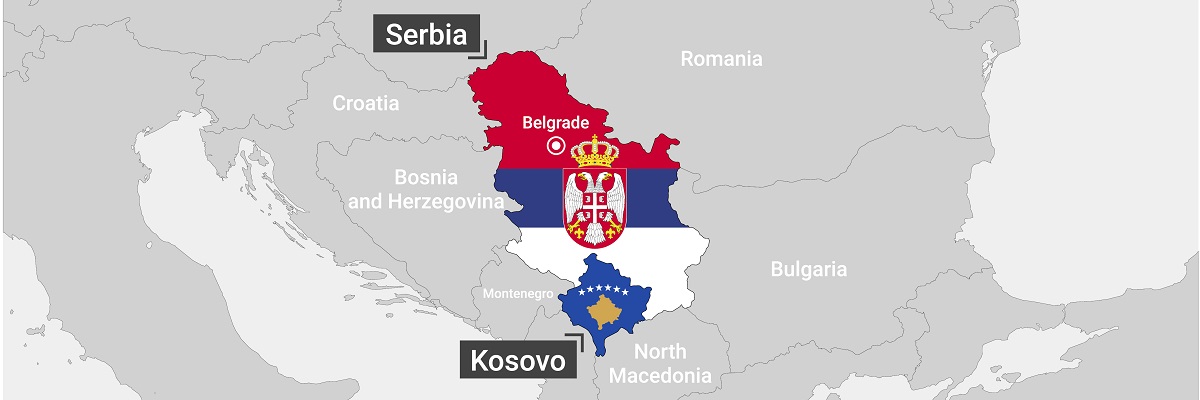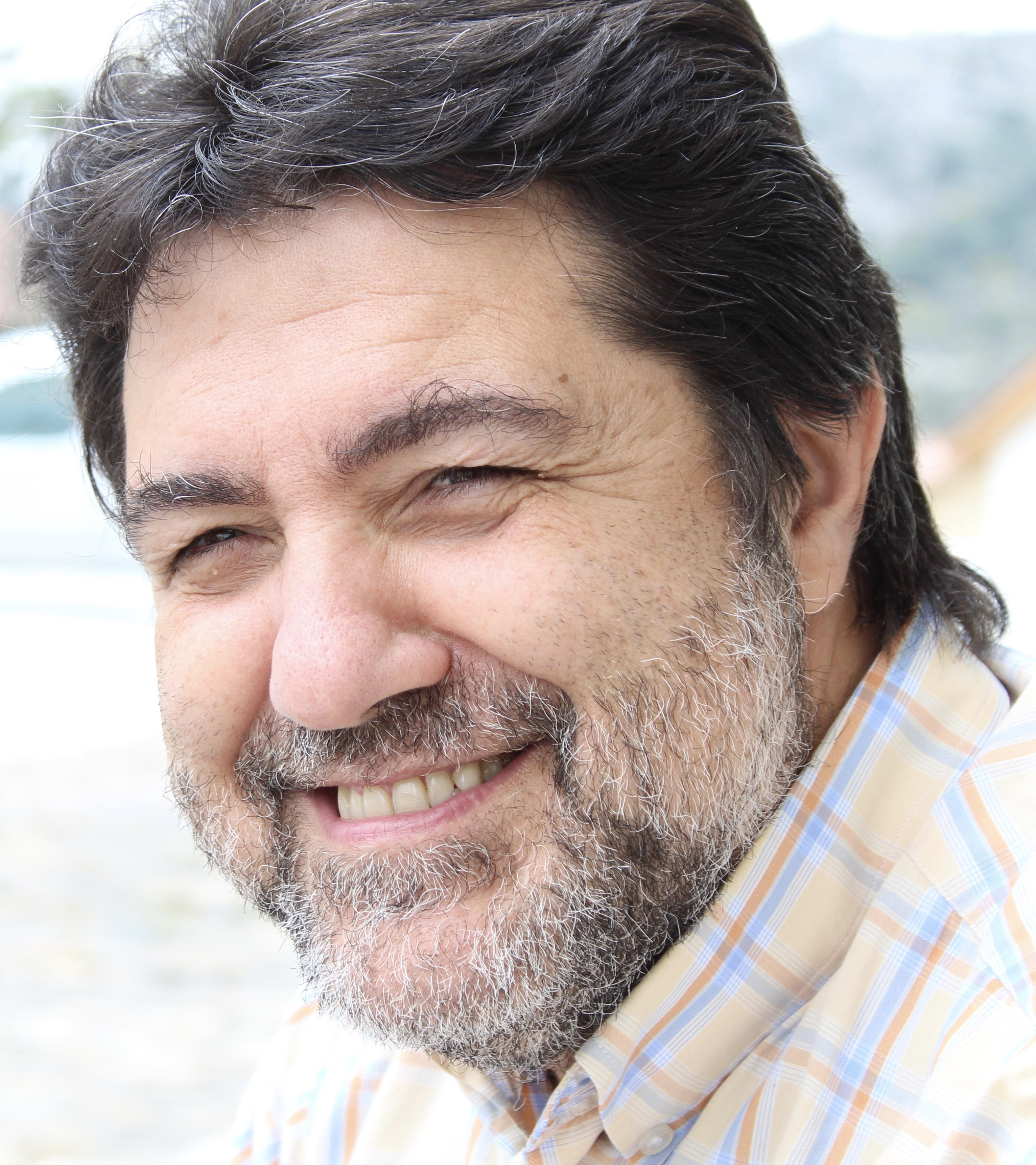Defense & Security
Kosovo and Serbia: from war to rottennes

Image Source : Stutterstock
Subscribe to our weekly newsletters for free
If you want to subscribe to World & New World Newsletter, please enter
your e-mail
Defense & Security

Image Source : Stutterstock
First Published in: Jun.07,2023
Feb.05, 2023
Kosovo was the last in the series of wars that destroyed Yugoslavia. More specifically, it was the conflict that condemned Serbia as the declared loser in a process of destruction unprecedented on the continent since 1945. The crisis of the unifying communist system after Tito's death coincided with the terminal paralysis of the Soviet system (of which it was not a part militarily and politically). Combative nationalism prevailed over liberal democracy as a mobilizing reference point for populations bereft of guidance and leadership. Many of the communist leaders, but also dissidents and opponents converted to the emerging nationalism.
Although Western historiography and political narrative tend to point to the Serb leadership as the main perpetrators of the tragedy, the truth is that the others were not innocent in the tragedy. The pro-Serb performance of the Federal Army (not surprisingly, the majority of the officer corps was Serb) only partly explains this biased analysis. The apparent Serb military superiority helped create a narrative of victimhood among the other minorities, which filtered through the media and changed an initially, if not neutral, then more cautious Western position.
In Kosovo, the perception of Serb responsibility was greater, if anything, since it was not a republic but a province of Serbia itself, but with a majority ethnic Albanian and Muslim population. Ethnic confrontations began to develop in Kosovo in the early 1980s, and in Kosovo, the Serb defeat was sealed when Milosevic tried to put down the Albanian armed revolt with blood and fire, provoking NATO bombing and, as a result, the subsequent fall of the regime.
Western support for Kosovo's independence was never unanimous (Spain is one of the countries that has not recognized the new state) and has remained controversial in the quarter century since the end of the war. The UCK, a guerrilla organization that opposed Belgrade, committed excesses and crimes comparable, at its level, to those perpetrated by the Serbs. The previous Yugoslav wars were replicated in Kosovo, with all their arsenal of manipulations, deceptions, falsehoods, and simplifications.
In these almost twenty-five years, Kosovo has not had an easy life. Serbia has never admitted the amputation of a part of its national territory, which is precisely the most sacred because the collective imagination considers it to be the cradle of the nation.
The majority Serb population in northern provinces of Kosovo decided to boycott the municipal elections, fed up with the fact that the promised autonomy agreed in 2013 has still not arrived a decade later. Nevertheless, the central authorities went ahead with the electoral process. Turnout did not reach 4 per cent. At the end of May, the five elected councilors, all Kosovar Albanians from different parties, hastily took office but faced massive opposition from Serb activists outside the town hall (1). A fierce battle ensued, during which approximately 40 soldiers from the Western peacekeeping force (KFOR) were injured as they attempted to separate the protesters from the aggressive Kosovo Albanian police, as reported by the BBC
Faced with the high risk of escalation, Macron, Scholz and Borrell exerted pressure on the Serbian and Kosovar leaders to address the crisis and urged the latter to repeat the elections under conditions acceptable to the Serbs. Pristina promptly agreed.
Washington took further action. Ambassador Hovenier announced the cancellation of Kosovo's participation in upcoming military exercises. Not only that, but he also threatened to "cease all efforts to help Kosovo gain recognition from those countries that have not yet done so and to encourage its integration into international organizations" Rarely have the Americans taken such against Pristina. They were particularly frustrated by the lack of coordination with KFOR in containing Serb protests. The new US assertiveness has two main motives: one local and one regional.
The current Prime Minister of Kosovo is Albin Kurti, a prominent member of the left-wing faction of Albanian dissidence. He is a determined leader with little inclination for diplomatic compromises. During his activist days, he defied Belgrade's amnesty decree and refused to leave prison, as he did not recognize the authority of his jailers who had offered clemency. After Kosovo gained independence, he became a staunch opponent of corruption and the authoritarian tendencies within the Kosovar Democratic Party and other formations inherited from the former KLA guerrillas. Kurti is regarded as an uncompromising adversary by the Serbs, but his unwavering stance may unexpectedly benefit Belgrade, as highlighted by a Croatian media outlet in relation to the current crisism.
The key regional issue revolves around the situation in Serbia, Moscow's strongest ally in the region. Following Milosevic's rule, the country experienced years of significant instability. After a brief period of leaning towards the West with a liberal orientation, a neo-nationalist regime took control. Essentially, Milosevic's successors managed to regain power that they had never completely lost. The current president, Aleksandar Vucic, previously served as the Minister of Communication in his previous government. The party he leads, known as the "progressive" SNS, has consistently achieved overwhelming absolute majorities. Vucic has employed constant propaganda and manipulation to circumvent Western opposition, intimidate liberal opposition groups, and suppress the weakened left.
In relation to Kosovo, Vucic has adopted a nationalist role, albeit without unnecessary excesses. He has effectively utilized a combative and vindictive rhetoric (it is worth noting that the SNS also holds the majority in the Serb-Kosovar districts), while presenting himself as a proponent of dialogue and negotiation when dealing with European and American counterparts.
This policy of double-dealing is not entirely fictional. Vucic, much like Milosevic in his time, is not an ideological nationalist. Nationalism serves as a tool for mobilization and control for him and his associates. Despite the deteriorating relations between Russia and the West, Vucic has managed to maintain a reasonable balance. He aspires to overcome the informal EU membership veto while maintaining privileged economic, energy, and trade ties with Moscow, Serbia's main ally in Europe by far.
On the domestic front, Vucic has effectively managed his political, institutional, social, and media dominance with minimal difficulties. However, problems have recently started to accumulate, as is often the case in countries with authoritarian tendencies when least expected. Two separate incidents of deadly shootings, perpetrated by individuals with no organized affiliation or identified political motivations, have sparked an unprecedented social protest movement. These isolated yet tragic incidents have unleashed long-repressed social unrest. A significant public demonstration caught the government off guard. Vucic attempted a retaliatory response that proved disappointing to his own people. The public is on the brink of rebellion, but it remains challenging for the opposition to significantly weaken Vucic.
In Bosnia-Herzegovina, Milorad Dodik, the leader of the Serbs, openly defies the central authorities in Sarajevo. He continuously threatens secession and makes decisions that exceed his jurisdiction, according to the European monitoring office. Dodik is a close ally of Putin's and maintains a fluid relationship with Vucic. However, each leader has their own agenda, and their priorities do not always align. The conflict in Ukraine has influenced the political strategies of Serbian leaders in the parent state and related territories. Washington is attempting to create a rift between Moscow and Belgrade, and Kosovo may present an opportunity to do so.
This recent crisis reflects the political decay that has plagued the Balkans since the conclusion of the Yugoslav wars. The nationalists did not merely triumph over their ethnic or religious opponents in the wars; they also solidified their control over their own populations. This was achieved through collaboration with mafia networks that emerged during and after the conflict, all while Western oversight remained impotent and/or passive.
First published in :

Graduate in Journalism and Contemporary History. Specialized in International Information throughout his professional career of more than thirty years in Public Radio and Television. He is currently retired from RTVE and collaborates with Fundación Sistema and several digital publications, with analysis on international current affairs. Professor in the Master's Degree in International Relations and Communication at the Complutense University of Madrid (2000-2012), until its disappearance. Lecturer at several summer universities on international affairs. He has published a novel related to the war in Yugoslavia, entitled "After the end" (2012).
Unlock articles by signing up or logging in.
Become a member for unrestricted reading!